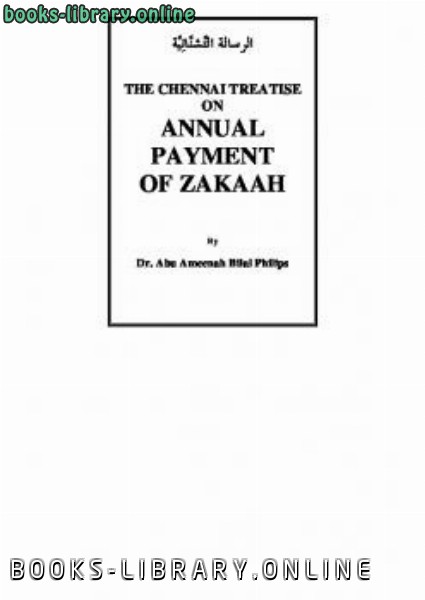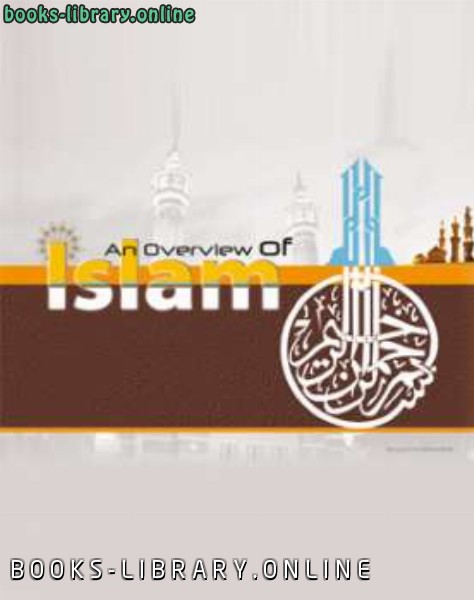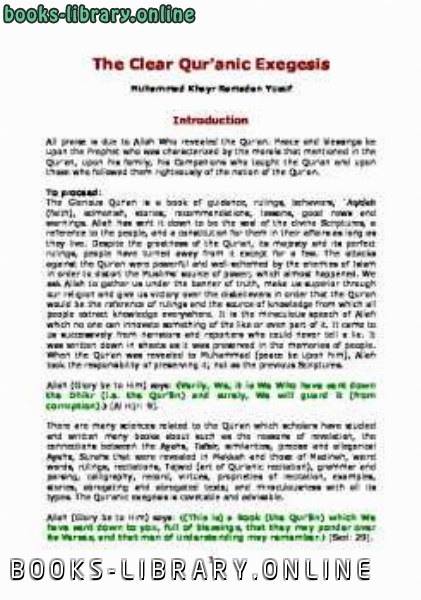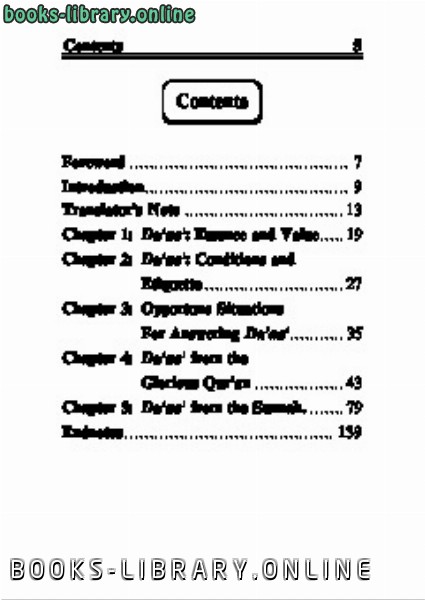كتاب THE CHENNAI TREATISE ON ANNUAL PAYMENT OF ZAKAAH
uring my visit to Chennai (formerly known as Madras), India, for a series of lectures in the Winter of 2002, I was confronted with a Fiqh issue concerning the annual payment of Zakaah around which there was much controversy at the time. I immediately addressed it and dealt with it in some of my lectures as thoroughly as was possible, given the limited reference resources which were available to me and the time constraints of my lecture schedule. For most people who attended my lectures in Chennai, my answers backed up with evidences were satisfactory. However, for those who were staunch followers of the local scholar who had made the controversial fatwaas (ruling), it became obvious that a more detailed refutation was necessary. Furthermore, I was informed that one of the highly respected local scholars from the Ibn al-Qayyim Center had requested the brother to debate the subject on more than one occasion, but to no avail. On my return to the UAE, the brothers who organized my lecture tour, informed me that the local scholar had claimed that the evidences that I had used were not authentic, consequently the D 4 controversy was raging again. They regularly contacted me asking for my written response and sent me the scholar’s Arabic compilation indicating that the commonly used evidences were inauthentic. After reviewing the Arabic text, it became obvious that the response was not what it was purported to be. Furthermore, it even contained some of the arguments in support of the standard position of Ahlus-Sunnah wal-Jamaa‘ah. I informed the brothers in Chennai of that fact and even translated the scholar’s Arabic response for them. 1 However, that did not prove to be sufficient. Consequently, in response to repeated requests, which also emanated from other parts of India, like Bangalore, Bombay, etc., I finally decided to put this treatise together. Another majo r reason for compiling this detailed refutation was t he fact that the student of knowledge’s fatwaa had led to many leading Indian businessmen, and middle class professionals abandoning the payment of their Zakaah. The conditions for giving Zakat and who should receive Zakat and explainations of certain Quranic verses.أبو أمينة بلال فيليبس - ❰ له مجموعة من الإنجازات والمؤلفات أبرزها ❞ Ujumbe wa kweli wa Yesu Kristo ❝ ❞ THE QURAN S NUMERICAL MIRACLE HOAX OR HERESY ❝ ❞ Dini Ya Kweli Ya Mwenyezi Mungu ❝ ❞ The Fundamental Principles of Qur’aanic Interpretation ❝ ❞ Usool At Tafseer ❝ ❞ Islamic Studies Book 1 ❝ ❞ Die Kategorien des Islamischen Monotheismus Tauhid ❝ ❞ THE CHENNAI TREATISE ON ANNUAL PAYMENT OF ZAKAAH ❝ ❞ Fiqh of Fasting ❝ الناشرين : ❞ دار الإسلام للنشر والتوزيع ❝ ❞ مكتب الدعوة بالربوة ❝ ❞ دار نشر الاسلامية الدولية ❝ ❱
من كتب اسلامية باللغة الانجليزية كتب إسلامية بلغات أخرى - مكتبة كتب إسلامية.

قراءة كتاب THE CHENNAI TREATISE ON ANNUAL PAYMENT OF ZAKAAH أونلاين
معلومات عن كتاب THE CHENNAI TREATISE ON ANNUAL PAYMENT OF ZAKAAH:
uring my visit to Chennai (formerly known as
Madras), India, for a series of lectures in the
Winter of 2002, I was confronted with a
Fiqh
issue concerning the annual payment of
Zakaah
around which there was much controversy at the
time. I immediately addressed it and dealt with it
in
some of my lectures as thoroughly as was possible,
given the limited reference resources which were
available to me and the time constraints of my
lecture schedule.
For most people who attended my lectures in
Chennai, my answers backed up with evidences
were satisfactory. However, for those who were
staunch followers of the local scholar who had made
the controversial
fatwaas
(ruling), it became obvious
that a more detailed refutation was necessary.
Furthermore, I was informed that one of the highly
respected local scholars from the Ibn al-Qayyim
Center had requested the brother to debate the
subject on more than one occasion, but to no avail.
On my return to the UAE, the brothers who
organized my lecture tour, informed me that the
local scholar had claimed that the evidences that I
had used were not authentic, consequently the
D
4
controversy was raging again. They regularly
contacted me asking for my written response and
sent me the scholar’s Arabic compilation indicating
that the commonly used evidences were inauthentic.
After reviewing the Arabic text, it became
obvious that the response was not what it was
purported to be. Furthermore, it even contained
some of the arguments in support of the standard
position of
Ahlus-Sunnah wal-Jamaa‘ah.
I informed
the brothers in Chennai of that fact and even
translated the scholar’s Arabic response for them.
1
However, that did not prove to be sufficient.
Consequently, in response to repeated
requests, which also emanated from other parts of
India, like Bangalore, Bombay, etc., I finally
decided to put this treatise together. Another majo
r
reason for compiling this detailed refutation was t
he
fact that the student of knowledge’s
fatwaa
had led
to many leading Indian businessmen, and middle
class professionals abandoning the payment of their
Zakaah.
The conditions for giving Zakat and who should receive Zakat and explainations of certain Quranic verses.
للكاتب/المؤلف : أبو أمينة بلال فيليبس .
دار النشر : .
عدد مرات التحميل : 6909 مرّة / مرات.
تم اضافته في : الأربعاء , 27 مارس 2019م.
حجم الكتاب عند التحميل : 264.5 كيلوبايت .
تعليقات ومناقشات حول الكتاب:
2
CONTENTS
Foreword
5
Introduction
9
Chapter One: The Obligation of Zakaah
19
Chapter Two: Annual Payment of Zakaah
31
Conclusion
42
Appendix
Arabic Text and English Translation
43
Bibliography
57
uring my visit to Chennai (formerly known as
Madras), India, for a series of lectures in the
Winter of 2002, I was confronted with a
Fiqh
issue concerning the annual payment of
Zakaah
around which there was much controversy at the
time. I immediately addressed it and dealt with it
in
some of my lectures as thoroughly as was possible,
given the limited reference resources which were
available to me and the time constraints of my
lecture schedule.
For most people who attended my lectures in
Chennai, my answers backed up with evidences
were satisfactory. However, for those who were
staunch followers of the local scholar who had made
the controversial
fatwaas
(ruling), it became obvious
that a more detailed refutation was necessary.
Furthermore, I was informed that one of the highly
respected local scholars from the Ibn al-Qayyim
Center had requested the brother to debate the
subject on more than one occasion, but to no avail.
On my return to the UAE, the brothers who
organized my lecture tour, informed me that the
local scholar had claimed that the evidences that I
had used were not authentic, consequently the
D
4
controversy was raging again. They regularly
contacted me asking for my written response and
sent me the scholar’s Arabic compilation indicating
that the commonly used evidences were inauthentic.
After reviewing the Arabic text, it became
obvious that the response was not what it was
purported to be. Furthermore, it even contained
some of the arguments in support of the standard
position of
Ahlus-Sunnah wal-Jamaa‘ah.
I informed
the brothers &nbp; in Chennai of that fact and even
translated the scholar’s Arabic response for them.
1
However, that did not prove to be sufficient.
Consequently, in response to repeated
requests, which also emanated from other parts of
India, like Bangalore, Bombay, etc., I finally
decided to put this treatise together. Another majo
r
reason for compiling this detailed refutation was t
he
fact that the student of knowledge’s
fatwaa
had led
to many leading Indian businessmen, and middle
class professionals abandoning the payment of their
Zakaah.
The conditions for giving Zakat and who should receive Zakat and explainations of certain Quranic verses.
 مهلاً !
مهلاً !قبل تحميل الكتاب .. يجب ان يتوفر لديكم برنامج تشغيل وقراءة ملفات pdf
يمكن تحميلة من هنا 'تحميل البرنامج'

نوع الكتاب : pdf.
اذا اعجبك الكتاب فضلاً اضغط على أعجبني و يمكنك تحميله من هنا:


كتب اخرى في كتب اسلامية باللغة الانجليزية
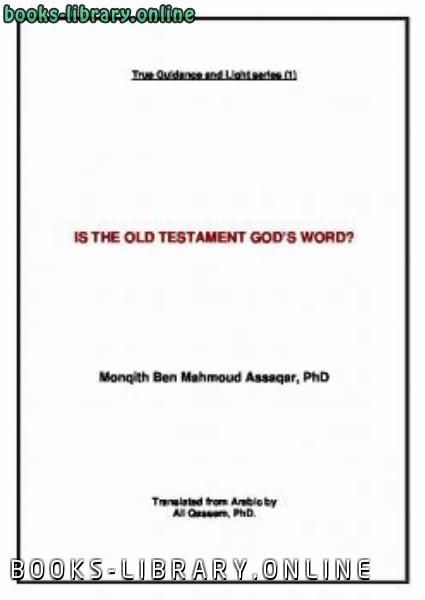
IS THE OLD TESTAMENT GOD rsquo S WORD PDF
قراءة و تحميل كتاب IS THE OLD TESTAMENT GOD rsquo S WORD PDF مجانا
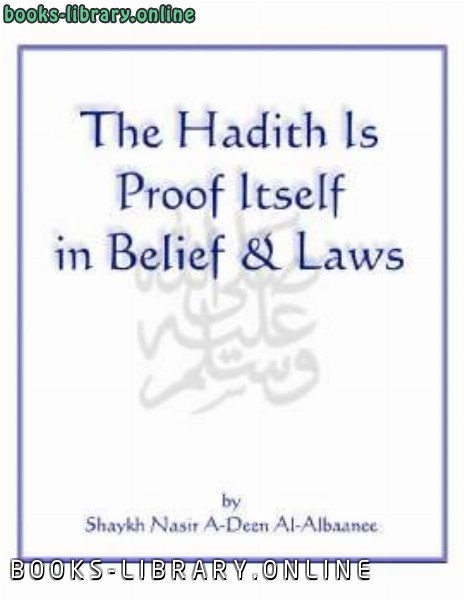
The Hadith is Proof Itself in Belief amp Laws PDF
قراءة و تحميل كتاب The Hadith is Proof Itself in Belief amp Laws PDF مجانا
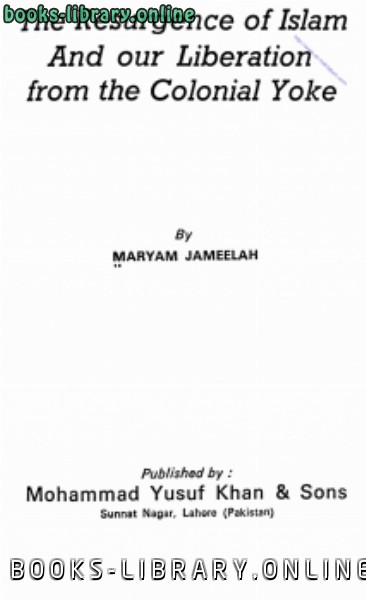
The Resurgence of Islam And our Liberation from the Colonial Yoke PDF
قراءة و تحميل كتاب The Resurgence of Islam And our Liberation from the Colonial Yoke PDF مجانا
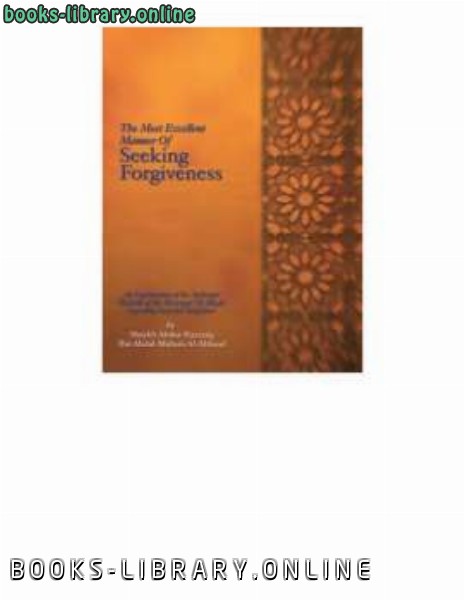
The Most Excellent Manner of Seeking Forgiveness PDF
قراءة و تحميل كتاب The Most Excellent Manner of Seeking Forgiveness PDF مجانا
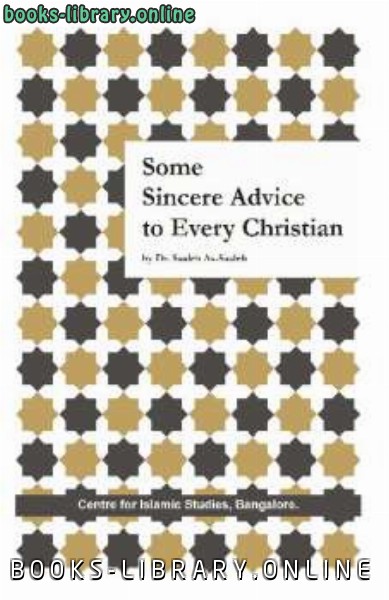
Some Sincere Advice To Every Christian PDF
قراءة و تحميل كتاب Some Sincere Advice To Every Christian PDF مجانا
